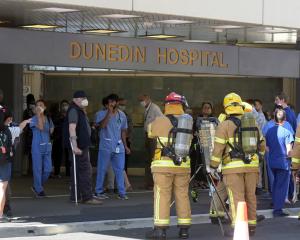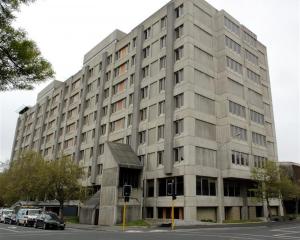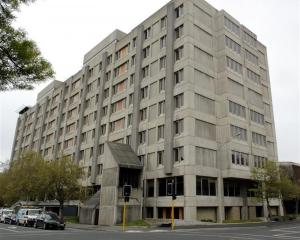When Mr Hunter spelled out his New Year hope last year he had recently been appointed the clinical leader of the "`6 Hours - It matters!" group which has been working on ways to shorten the amount of time patients spend in the emergency department.
For some time, the hospital had been languishing near the bottom of national district health board rankings for a target requiring 95% of ED patients spend no longer than six hours in the department before being treated and discharged or admitted to a ward.
Dunedin Hospital's performance was about 70% a year ago, but Mr Hunter expected in the second quarter of this year the result would be "up in the high 80s".
He expected when the 10-bed observation unit, beside the ED, is finished in July it should boost the compliance with the six-hour target to around 90%.
While the improvement so far sounds impressive, Mr Hunter cautions against reading too much into it.
There were still systemic issues - " the hardest ones" - to be dealt with before the improvement would be permanent, he said.
Mr Hunter is not convinced that the target will be achieved consistently without some sort of admissions and planning unit, but he knows not all staff support that idea.
Mr Hunter, who is also a member of the Putting the Patient first governance group, which has been developing a strategy for improving patients' journey through Dunedin Hospital services, said he has been encouraging staff to debate whether the hospital could work in a different way.
In a teaching hospital offering a wide range of highly developed specialties to a small population, there was a constant tension between offering such specialties and providing a more general style of care.
Among the issues he is asking people to consider is whether more generalist training could be provided by the hospital and whether a change in the way patients were admitted might lessen the need for specialists to provide round-the-clock cover.
He has been looking at whether some outpatient appointments could be freed up to allow easier access for some acute patients.
It seemed there were patients who were brought back repeatedly for follow-up appointments after their initial treatment, which provided little value to the patient and took up specialist time.
His view was the hospital needed "flexibility of care capacity". This did not mean that wards should be operating at 95% capacity, as this did not allow for fluctuations in demand.
Hospital beds also had to have appropriate nursing allocated so that patients were in wards suited to their condition.
One of the concerns about Dunedin Hospital in recent time has been the high number of "outlier" patients - those treated in wards not specialising in their condition.
It was not a safe practice, Mr Hunter said.
He hopes the arrival of the new Scottish chief executive Carole Heatly will add focus to the quality improvement initiatives within the hospital.
"Lots of people in the organisation are ready for change."
Even if all did not like the idea of change they accepted it had been clearly indicated and realised that the way that the hospital had been doing things had some "serious shortcomings".
Ms Heatly had a lot of experience in quality improvement and the fact her background was as a senior emergency department nurse was also an important attribute.
She understood processes because she had been part of them, he said.
He said he was looking forward to her arrival, expected in February or March.
"I don't think I've felt as optimistic about the direction of the organisation in the last 25 years."
There was a "real chance" for improvement which would benefit patients, he said.








